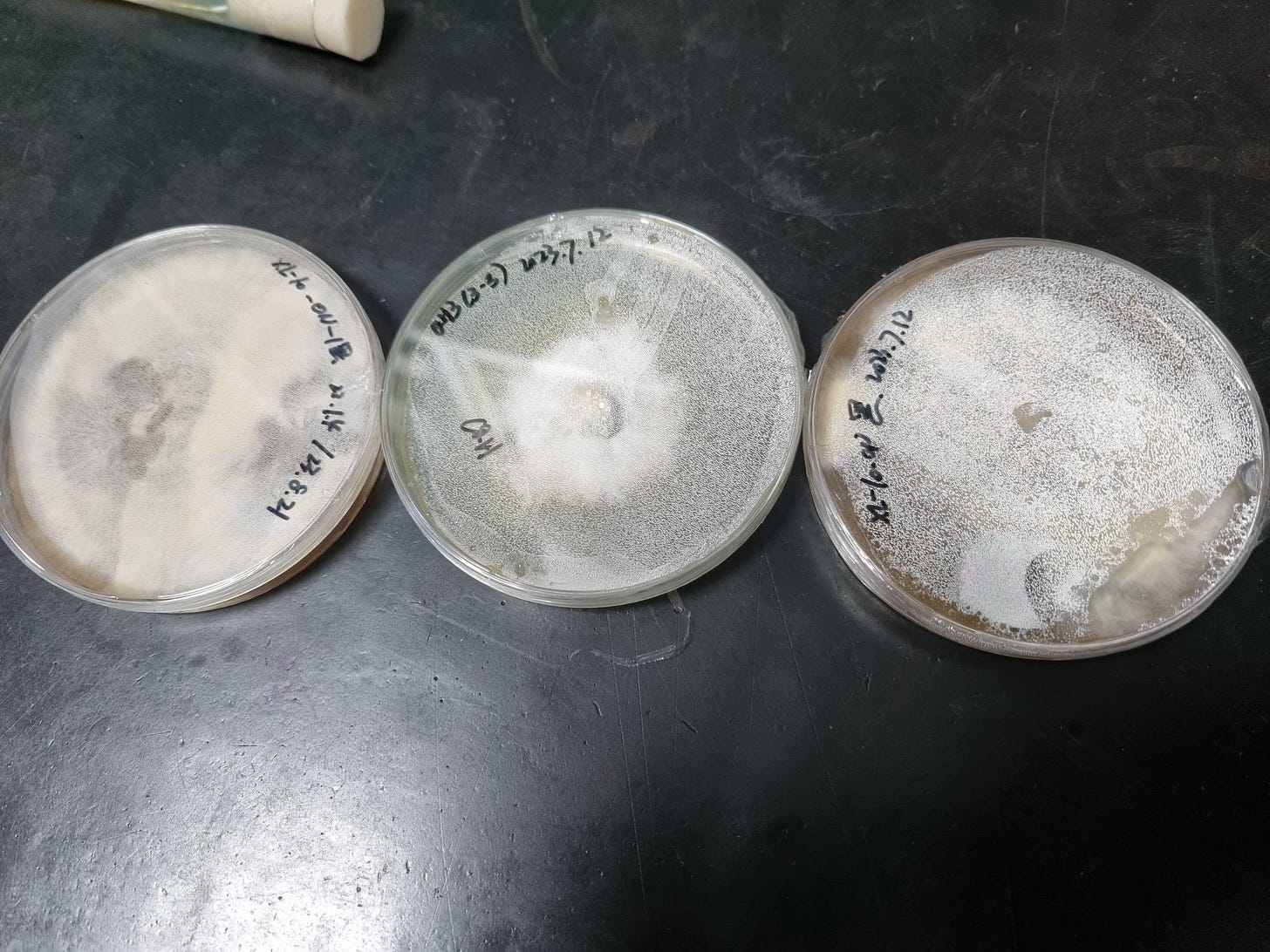
Fairy rings are really quite fascinating, and I wrote about them here earlier. I am currently visiting at China Agricultural University, where they also cultured mycelium of some of the mushrooms forming fairy rings in Chinese grasslands. It made me think about whether we can reproduce fairy rings under controlled conditions. I am not sure that has ever been achieved — so if you know of a case, please let me know in the comments!
Why would you want to try? Well, I can think of a few reasons. You could try to explore under what conditions these rings are being formed. Maybe there is a lot of organic matter input required, and one could test for that quite easily under controlled conditions. It would also be interesting to figure out how long it takes to form such a feature, how it exactly expands (in all dimensions), and what exactly happens. One could keep a lot of the conditions constant, such as plant community composition, or maybe the experiment could even work without plants.
How would one do it? I am not sure, perhaps use rather big mesocosm setups and bring a lot of time….I still have about 10 years or so to retirement. :) I guess I would seed it with some grass species to provide carbon input, and then maybe have a carbon input treatment as well.
How would you detect the ring? It would be best if there was a macroscopically visible feature that could be observed, like some change in the grass cover, perhaps even mushrooms, but that is maybe less likely. Of course one could do this all with sequencing at regular intervals to observe the spread of the mycelium of the fungus that was added, assuming it is easy enough to distinguish it from the other fungi present using high-throughput sequencing. This seems likely given what we know from field observational studies.
Either way, wouldn’t that be fun? I am not sure what we could learn, but I think I would be quite interested in trying things out and seeing what happens. If we fail to see a fairy ring that could potentially also be interesting, but less instructive. What do you think?



